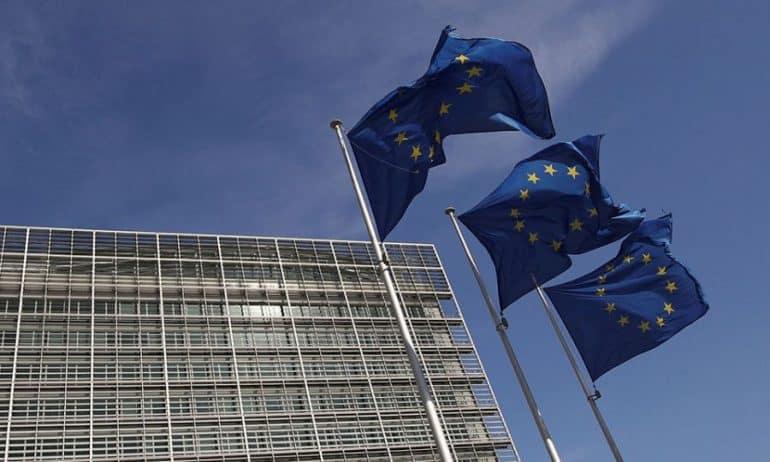The EU Council will proceed with the adoption of the sixth package of sanctions by written procedure tomorrow morning. The ambassadors of the Member States will meet shortly after 3 pm local time to settle the final details.
The text of the decision, which is available to "K", includes the exemption for the import of Russian oil through pipelines and the special provisions for a number of countries that would face a problem of energy adequacy if they were forced to completely suspend imports of oil or its products. by the end of the year. It also includes the - coordinated with the United Kingdom - ban on insurance of tankers carrying Russian oil by European companies.
The Council Decision states in particular: "If the supply of crude oil via pipeline from Russia to an enclosed Member State is interrupted for reasons beyond the control of that Member State, the importation of crude oil from Russia through in that Member State, as an exceptional temporary derogation, until the supply through the pipeline is resumed or until the Council decides that the ban on the import of crude oil delivered through the pipeline will apply to that Member State. " .
This wording provides Hungary with the assurance that, in the event of a flow interruption through the southern section of the Druzhba pipeline (which passes through Ukraine), it will be able to continue to supply Russian crude (which will reach Croatia by tanker). Hungary insisted that the wording specifically mention Russian oil. The Czech Republic also demanded similar guarantees, but did not insist that the oil must be Russian, as it has a refinery that can process other types of crude oil.
In Bulgaria, exceptionally, it is possible to execute contracts for the transport of Russian oil and petroleum products by sea until 31.12.2024, provided that these contracts have been agreed before the entry into force of the Decision. Bulgaria has asked to be excluded due to its heavy dependence on Russian oil and the fact that it was one of the first countries in which Gazprom cut off gas supplies. Croatia, also exceptionally, will have the opportunity by the end of 2023, to import vacuum gas oil from Russia, provided that it will not be able to import it elsewhere.
In order to provide the necessary guarantees on a level playing field, given the cheapness of Russian oil transported by pipeline, the Decision stipulates that countries that continue to import it will not be able to transport or export it after 31.12.2022. its products in other Member States or in third countries. A temporary exemption is granted to the Czech Republic, which will be able to continue to import Russian oil products (mainly diesel) from other Member States for 18 months.
With regard to ship insurance, the ban will take effect six months after the formal adoption of the Decision. A similar adjustment period is expected to be announced by the United Kingdom, while work continues on the adoption of the ban by all G7 members. Only by taking the measure from the EU. and the United Kingdom, however, the blow to Russia's ability to export its oil by sea will be severe.
Finally, the ban on real estate transactions for Russians and Russian companies, which was included in the Commission's original plan, was lifted from sanctions. Cyprus had specifically requested an amendment to this measure.
By Giannis Paleologos
Source: Kathimerini.gr
